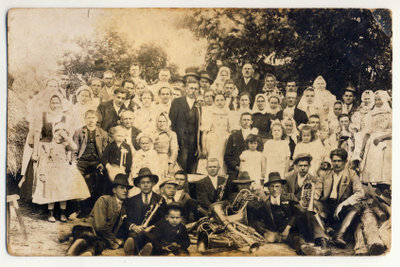Cousin 2. To marry
Only love counts. Still, it wasn't that easy in earlier times. If you have a cousin 2. If you want to get married, it is easier for you today. But apart from the legal situation that is positive for you, you should still take one or the other aspect into account.

The marriage between cousin and cousin is unproblematic in Germany and almost every other country. There is one in some Balkan countries relationship however, it is still banned, while it is a normal form of marriage, especially in Islamic countries.
A cousin 2. Grades has the same great-grandparents
- The names for cousins and cousins 1. Degree or 2. Grades, nephews and nieces, cousins and bases are sometimes confused in language and literature and are often misleading. There is also often talk of grand cousins or kissing cousins. Generally one speaks of the ancestral relationship.
- So: cousins are the children of siblings. They are also called cousins 1. Degree, like the heirs 1. Order in inheritance law, the children of the testator are. Cousins 1. Grades have different parents, but the same grandparents.
- Cousins 2. Then the children of the 1st degree are the children of the cousins and cousins 1. Degree. They have different grandparents, but great-grandparents in common. So there are 4 generations involved.
Family tree facilitates the degrees of relationship
- If you have a cousin 2. If you want to get married in the 3rd degree, it is best to draw up a family tree. This makes it easier to understand the relationship sequence in case of doubt.
- Section 1307 of the Civil Code stipulates that marriage may not be concluded between relatives in a straight line or between full siblings and half siblings. These people are blood relatives. These are parents, grandparents, great-grandparents on the one hand and children and grandchildren on the other. Section 4 of the Marriage Act also stipulates that straight-line marriage between relatives is prohibited.
- The same regulation applies according to § 1307 S. 2 BGB even if the relationship has expired due to the adoption as a child. This child is still considered to be directly related.
- It looks different in Catholic marriage law. There can 1091 CIC stipulates that relatives, especially blood relatives, but also first cousins, may not enter into marriage. However, the church can issue a special permit and lift the church ban on marriage with a dispensation. The Catholic Church had banned marriages up to and including third cousins until 1917. However, this canonical law has lost its meaning as a result of the introduction of civil marriage.
The kiss cousin is there to be kissed? No, it's not that simple. With the concept of ...
Still, calculate the risk when getting married
- The main reason for the prohibition of marriage is human genetic problems. There is an increased risk of hereditary diseases. The greatest risks lie with direct relatives. This is also called incest. The risk of a hereditary disease with a father-daughter or brother-sister relationship is 30-50%.
- In a first-degree cousin-cousin relationship, the risk is given as 5-6%.
- The risk of a second cousin-cousin association is still 3-4%.
- For comparison: The risk for unrelated people is 2-3%. This means that the risk in the second cousin-cousin relationship is almost reduced to that of the general population.
If you have a cousin 2. If you want to get married in a third degree and have concerns, you should seek human genetic advice. This is especially true if you or your partner come from such a connection. You are acting in the interests of your children. A personal aversion to the topic therefore seems out of place.
How helpful do you find this article?
